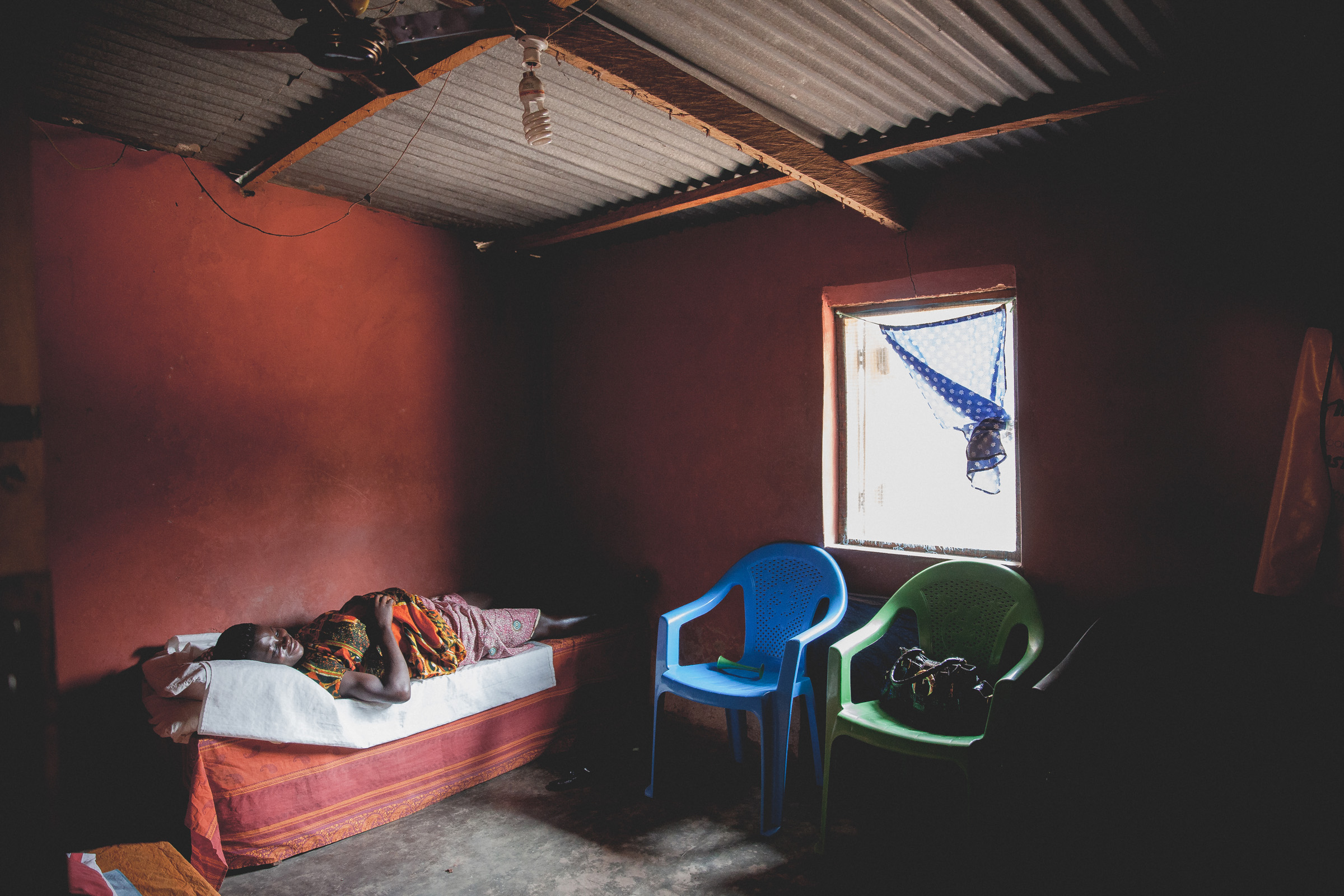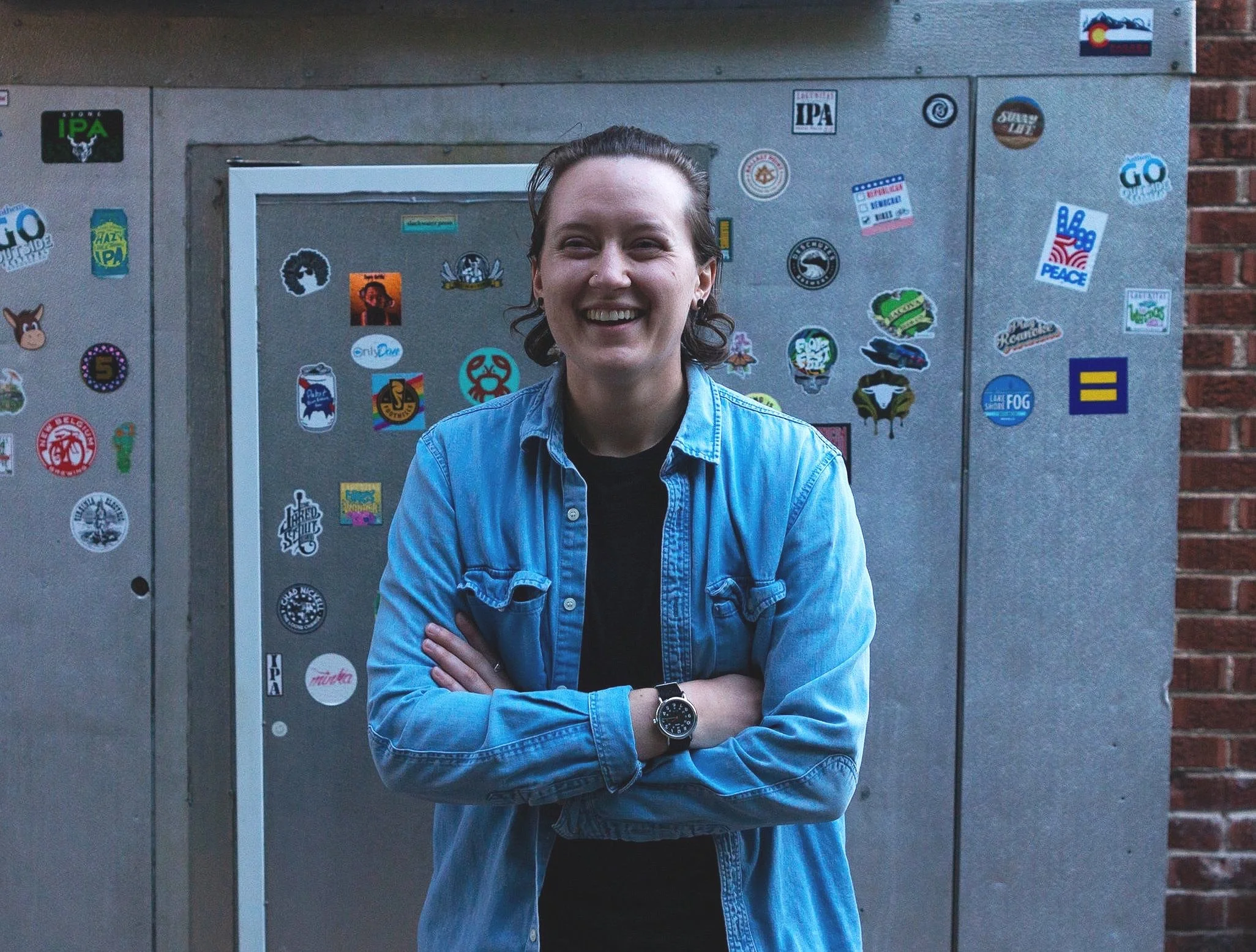PHOTO: Amber Kissner
"The still night was pierced by a shrill cry; a person rushed out of her home to see what was happening. Sadly, a 24-year-old woman had died giving birth to her first child. I grew up with these screams in the Akpafu mountainous region of Ghana," reported Pewudie Emmanuel, Programmes Coordinator at Akpafu Traditional Birth Attendants Women’s Association (ATBAWA). He comes from a district that spans about 870 miles and is comprised of 171 villages with a population of over 260,000 people. However, they have only 15 qualified midwives there.
PHOTO: Amber Kissner
PHOTO: Amber Kissner
PHOTO: Amber Kissner
According to the Ghana Health Service (GHS), the Greater Accra Region has registered the highest number of maternal deaths in the country, mainly because of bleeding and hypertension. 197 maternal deaths were recorded in 2016, and 100 of them were associated with bleeding. Women in childbirth can loose enormous amounts of blood, and the regional blood banks sometimes cannot supply the demand.
PHOTO: Amber Kissner
Emmanuel explains that there are some vital factors that lead to the high maternal deaths in the country: the lack of trained or skilled attendants at birth in the mostly rural areas of the Greater Accra Region; the scarcity of emergency transportation for pregnant women, and the paucity of timely referrals to the hospitals/health centers in the region, are only some of them.
PHOTO: Amber Kissner
After Emmanuel became a registered nurse and midwife, he decided to do something about this issue and realized that the problem could have been avoided if the Traditional Birth Attendants (TBAs) could receive a proper education and training. "When the Ghanaian government dubbed our high maternal and infant mortality rate a 'national menace', I knew I had to do something," Emmanuel said. "Thus, ATBAWA was born." That year in 1992 in Hohoe, Volta Region, Ghana, ATBAWA rose with the objective of diminishing maternal and infant mortality rates and to improve the health situation of pregnant women and children in the area.
PHOTO: Amber Kissner
The organization targets untrained midwives and gives them the necessary training and equipment to lower pregnancy complications. The TBAs are then able to provide instructions about family planning, contraception and the prevention of HIV/AIDS, pregnancy, birth, hygiene, among other information. Their work is a voluntary contribution. There are no charges for their services, but the families that are not so impoverished are asked to make a small contribution. "But everyone is entitled to their support, whether they can pay or not," Emmanuel said.
PHOTO: Amber Kissner
Atapani Paulina and her daughter Adeh Philomena are mother and daughter and are both TBAs with ATBAWA. Paulina has been a respected TBA for over 55 years. Her daughter Philomena received her training in 2010. According to Philomena, when she started to work they only knew what their mothers had taught them. "Now we understand even about where malaria comes from. We tell mothers about keeping water covered and not having loose water around for the mosquitos to breed in. We give out mosquito nets and when we visit the homes we can make sure that the mother and baby are both sleeping under the net, not just the husband. Not so many young babies die of malaria this way," she explained.
PHOTO: Amber Kissner
The importance of the organization can be observed by its numbers. “About 50,000 and above women and children were reached by the training programs of ATBAWA; each TBA assists 25 to 120 births every year. Moreover, 118,000 people in the communities were reached by awareness raising events about sexual and reproductive health provided by TBAs,” Emmanuel reported. ATBAWA also has a dialogue with the locals to know about their priorities. "Without the organization, the people in the communities may be denied access to even government programs because of political and or ethnic reasons," explained Emmanuel.
PHOTO: Amber Kissner
PHOTO: Amber Kissner
Despite its huge support to the local community, the institution is facing some big challenges. Emmanuel shares that the organization is lacking office equipment and materials such as computers, printers, photocopiers, laptops, a digital video camera, a projector, and office supplies. They also have scarce of potential funders for the maternal and child health care programs. "Lack of funding makes us not been able to organize programs periodically for community-based midwives," he stated.
PHOTO: Amber Kissner
Another obstacle is that the organization does not have its own transportation, which prevents them from visiting the trained midwives monthly to collect report on their work. "As an institution, we don’t have even one motorbike to use for our work. All attempt to get a pick-up vehicle over the years has proved futile. We have to rely on public transportation and hiring of vehicles/motorbikes before we are able to do monitoring and supervision," said Emmanuel. "The motivational aspect for ATBAWA is like a passion that we have developed for the women and children in our communities."
PHOTO: Amber Kissner
Photographer Amber Kissner photographed the work of ATBAWA and believes that they are filling a gap in the country. "They are providing information down to the basics of 'how to wash hands properly," Kissner explained. She believes that creating a human connection is important while photographing people in such delicate conditions. "I didn't take out my camera until I developed a comfortable level of interaction with the women. It's important to have a friendly demeanor and to know when to also not take photos."




























